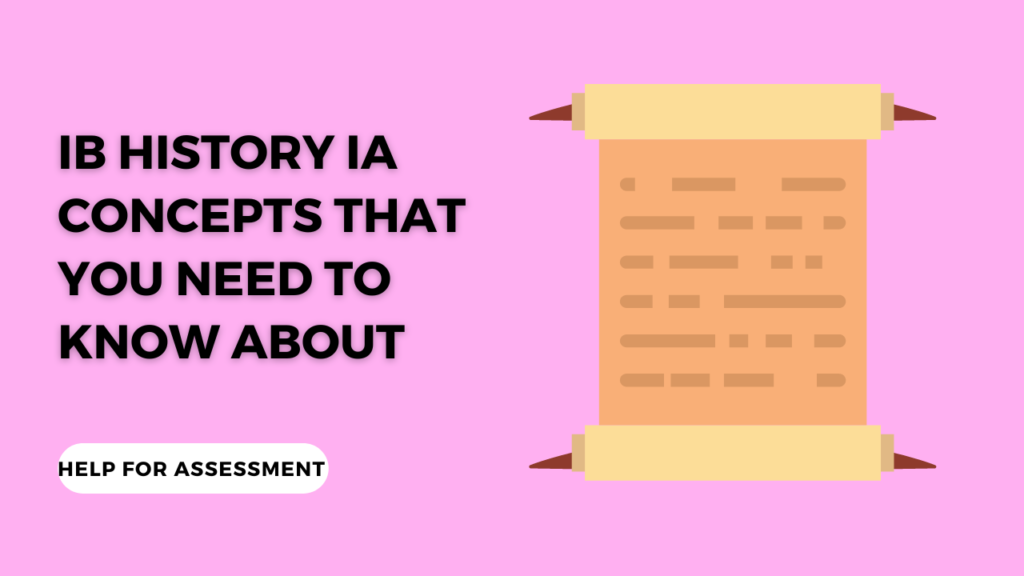In IB History, concepts, themes, and categories play a significant role. They enable you to see the wider picture, make comparisons, and think more logically and critically about prior occurrences.
IB History IA Concepts Explained
The following is an outline of the course’s core concepts:
- Cause
- Effect
- Continuity
- Change
- Importance
- Viewpoints
- Consequence
1. Change
The study of history entails an examination of the extent to which individuals and events affect change.
Even if some assert that no change exists, you should consider and search for it.
You can also seek for evidence to refute conventional hypotheses and presumptions about the persons and events that led to substantial change.
You must base your queries and evaluations on historical change on a thorough comprehension of the subject matter and a comparison of the situation before and after the examined events.
2. Continuity
Despite the fact that the study of history frequently focuses on moments of tremendous change, you should also be aware that some change is slow and that there is substantial continuity in history.
You can display in-depth historical knowledge and comprehension by recognizing that there have been periods of significant continuity amidst significant historical change.
Alternatively, you may query and evaluate if a change in political leadership resulted in a change in foreign policy. Or check whether it reflected the policies of prior administrations.
3. Causation
Causation focuses on claims about the past attempt to explain and comprehend the genesis of a certain set of events.
Deep historical understanding is demonstrated when you recognize that the majority of historical events are caused by the interaction of diverse and multiple causes.
These require you to make evidence-based judgments about which causes were more important or significant, or which causes were within the control of individuals and which were not.
4. Consequence
History is the study of how past causes have shaped the people and society of the future.
You exhibit proficiency as a historical thinker when you comprehend and describe how key events and individuals have had both immediate and long-term consequences.
You utilize data and interpretations of these individuals and events to establish comparisons across different times in time and to evaluate the extent to which these factors caused long-lasting and consequential effects.
6. Significance
History is not only a chronicle of every event that has occurred in the past.
Instead, history is the record maintained by evidence or remnants of the past and the features of the past that someone has opted to record and transmit.
You should inquire as to why anything appeared in a historical narrative. Likewise, you should consider who or what has been left out of historical accounts and why.
In addition, you should consider and evaluate the relative significance of events, individuals, groups, and developments, as well as whether the evidence supports the assertions made by others regarding their significance.
7. Perspectives
You should be aware of the exploitation or abuse of history to recreate and promote a grand narrative of history, a narrowly focused national mythology that disregards alternative viewpoints, or to elevate one perspective to preeminence.
You should evaluate and analyze diverse historical viewpoints, and then use historical data compare and confirm them. You must acknowledge that for any occurrence recorded in the past, there may exist several contradictory or divergent viewpoints.
You may also study and compare how individuals, particularly specific groups such as minorities or women, may have experienced events differently in the past using primary source narratives and historians’ interpretations.
Final Thoughts
Together, these principles connect “historical thinking” to “historical literacy” skills. In this context, “historical literacy” refers to the active interaction with historical writings that leads to a profound understanding of historical events and processes.
People with historical literacy can evaluate the veracity of several claims and develop thoughtful approaches to addressing these issues. They are able to examine historical sources, they are aware that a historical film might appear “realistic” even if it is inaccurate, and they recognize the usefulness of footnotes.
As the title of Margaret MacMillan’s book suggests, those who study IB History IA can distinguish between the purposes and abuses of history. “Historical thinking” is only feasible in conjunction with substantive substance.

